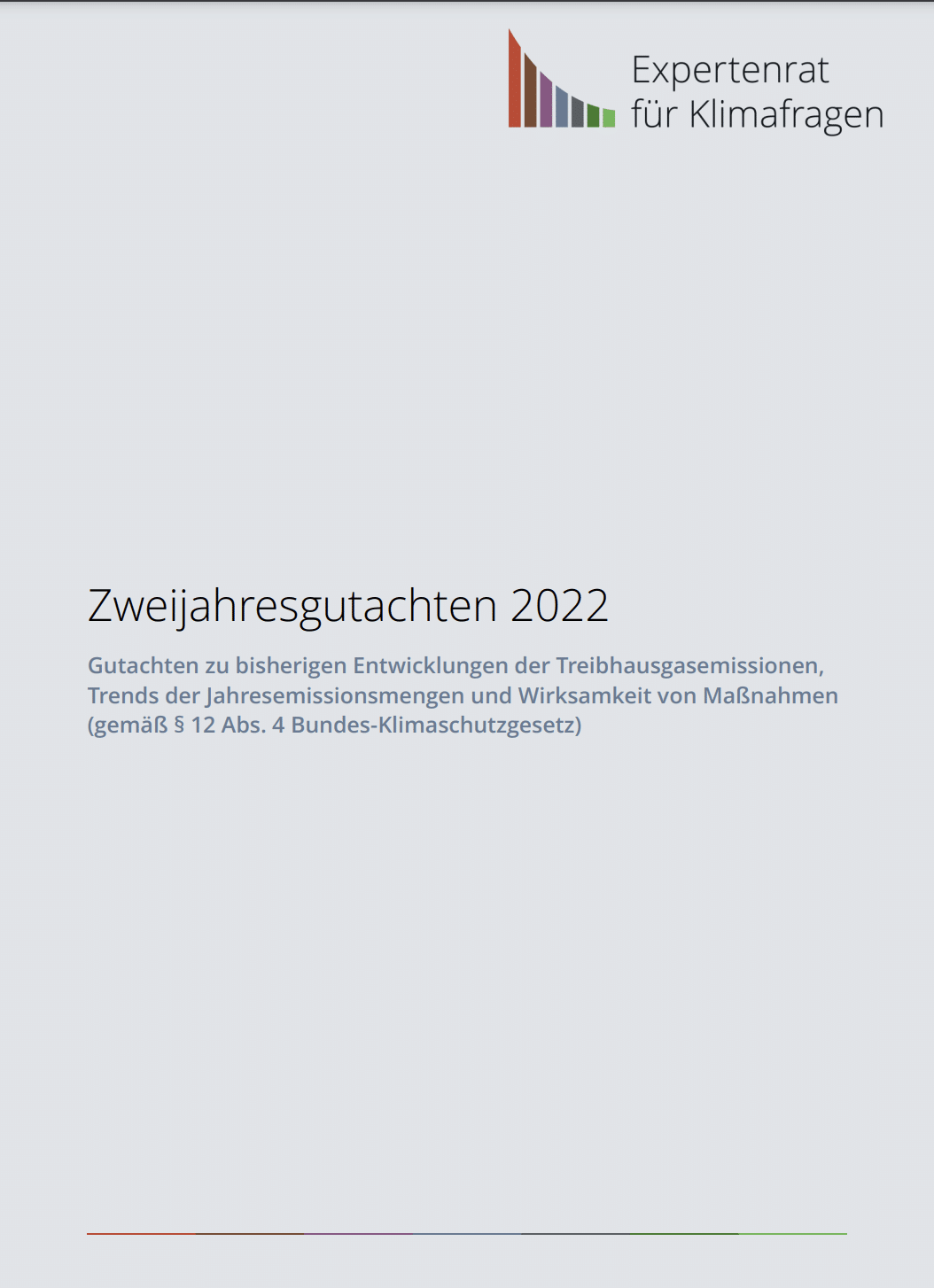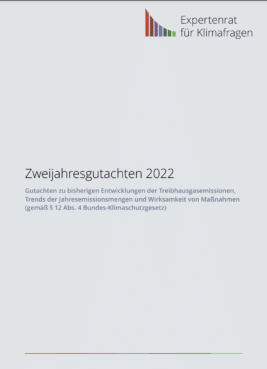Biennial Report 2022 – Report on previous developments in greenhouse gas emissions, trends in annual emission levels, and effectiveness of mitigation measures
Date de publication : 4 novembre 2022 | langue de rapport : EN
In 2022, the German Council of Experts on Climate Change (Expertenrat für Klimafragen, ERK) published its first biennial status report. In accordance with the legal mandate provided by the Federal Climate Protection Act (Bundes-Klimaschutzgesetz, KSG), the independent scientific body examines in the report the developments of greenhouse gas emissions to date, trends regarding annual emission levels, and the effectiveness of measures with a view to achieving the German national climate targets by 2030. The report first looks at the historical period 2000-2021, in which greenhouse gas emissions in Germany decreased by around 27 percent, adjusted for temperature. The energy sector contributed almost half of this reduction, especially from 2014 onwards. In contrast, the greatest efficiency-related reduction successes were achieved in the buildings, transport and industry sectors in the first decade until 2010. This was followed by a phase of stagnation or even a slight increase in emissions. As a result of the Covid 19 pandemic, a decline in emissions was recorded again in industry and in the transport sector, but this effect again reversed in 2021. The development of greenhouse gas emissions observed in the past as well as the extrapolation of the trends of the last years before the Covid 19 pandemic indicate a considerable compliance gap for all individual sectors and for overall national emissions with regard to the 2030 targets. According to the report, the current rate of expansion of solar and wind energy plants, heat pumps or electric mobility will not be sufficient to achieve the government’s expansion targets. Furthermore, the report points out that in addition to the expansion of low-carbon technologies, the parallel reduction of the fossil capital stock is necessary to achieve climate targets. The ERK concludes that a paradigm shift is necessary, which consistently addresses all available impact areas of climate policy measures. As one possibility for such a holistic addressing of all impact areas, the ERK mentions a hard cap on permissible emissions. Political control would then no longer have the primary task of controlling emissions, but the even greater challenge of shaping the transition to a low-carbon economy in a way that it is economically and socially viable for society.




